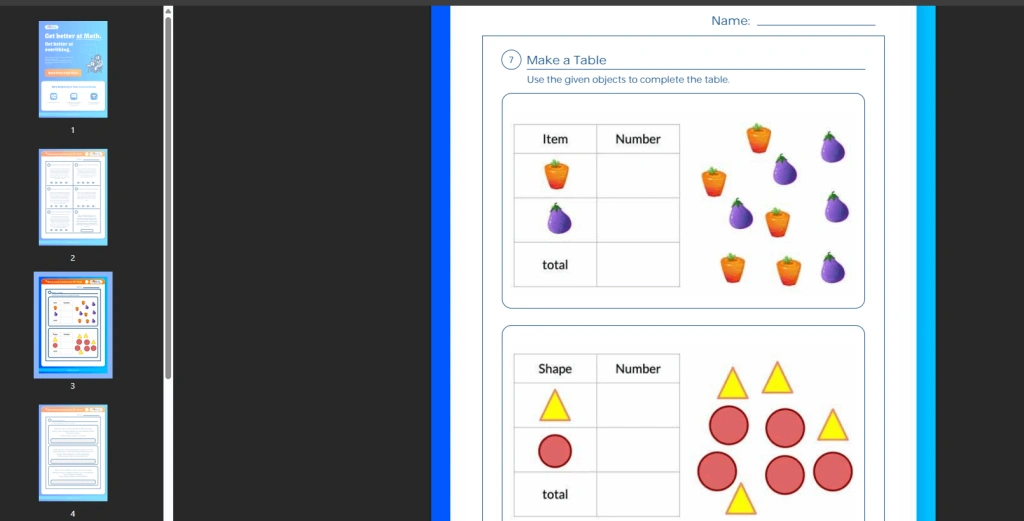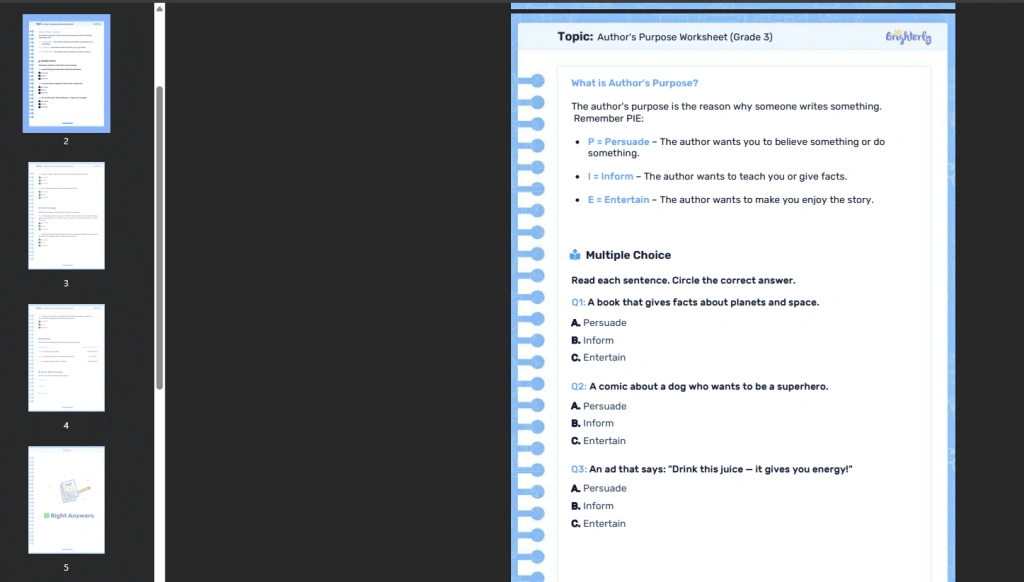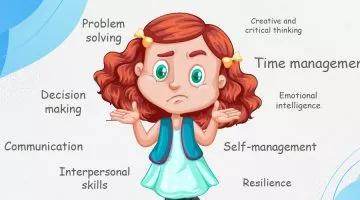How to Become an Online Tutor?
reviewed by Franz Jerby Delos Santos
Updated on November 26, 2025
The post-pandemic world has become digital. Empowered by this trend, people from everywhere with a passion for tutoring can enjoy a wealth of possibilities — whether through live lessons, group sessions, or simple chat-based support. If you’re the one struggling to become an online tutor, you’re in the right place. This blog post will help you get started smoothly, sharing some irreplaceable pieces of knowledge — all concluded from the Brighterly experience.
Key points
- To become an online tutor, you should have a special qualification level in your subject, obtain relevant certifications, and develop a stack of special skills.
- Whether you want to become a tutor for elementary, middle, or high school kids, you should be well aware of teaching methodologies for those grades.
- Brighterly is where any tutor can embark on a profitable, promising, and well-balanced career. Thus, those asking how to be a tutor online should first explore the specific options available through Brighterly.
Necessary qualifications to become an online tutor
1. How to be an online tutor and get paid: Education
Technically, you can become a tutor online even without a proper Bachelor’s degree. Indeed, you can choose to charge any price for your private sessions, as long as someone is willing to pay.
However, if being an online tutor sounds like a perfect idea for your lifetime career, you should get a proper education for at least two reasons:
- Tutoring companies and educational business organizations always prioritize candidates with the relevant education.
- Parents also commonly ask about a tutor’s diploma before they enrol.
That’s why each Brighterly online math tutor can boast at least a Bachelor’s degree in their field:
 |
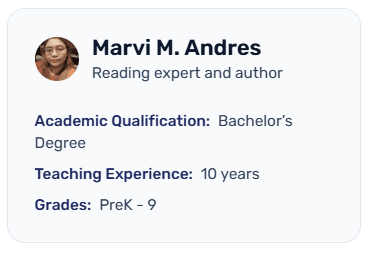 |
I should also highlight that having a college or university diploma can be the only option for anyone asking, “How to become an online tutor with no experience?” You need a strong head start, and having a diploma can really put you ahead of the game.
2. How to be an online tutor and get paid: Training and certification
If you’ve passed a qualified training, obtained a license, or own certifications, you automatically increase your chances to become a tutor online. Certifications carry weight since earning them requires significant effort. For example, some of the training programs accept only those applicants who hold a degree. In comparison, others will ask you to pass an exam before granting proof of knowledge.
If you pursue the math tutor certification, you can search through courses proposed by diverse accredited associations:
- The American Tutoring Association
- The Association for Tutoring Professionals
- The National Tutoring Association
And, the number of available certificates also counts if you want to become a tutor — the more, the better.
3. How to be an online tutor and get paid: Online tutor skills
Many people who ask, “How do I become an online tutor?” think that the answer lies in knowing their subject. But, in fact, they also need a solid stack of soft skills. And it doesn’t matter if you aim at becoming a tutor for elementary students or prefer teaching high schoolers, these skills will be of much benefit anyway.
Patience
The truth is that an online tutor career isn’t a breeze. Some kids learn information quickly, while others need to repeat it multiple times. Similarly, various glitches can occur — poor video quality, internet lag, or bad sound.

Ability to listen
You cannot become an online math tutor if you don’t pay enough attention to students’ needs. You should be able to understand what they require, why they cannot handle a specific topic, and even why they fail an exam. For example, when one wants to join the Brighterly team, their ability to listen is a must-have soft skill.
Strong problem-solving
You have to know the needs of each child and then provide the best solution. For example, some children may require a more gamified approach. By contrast, others prefer drill-based tasks with multiple repetitions. Anyway, you should know the needs in advance.
How to become an online tutor for elementary students
To become an online tutor for elementary students, you should perfect your subject and develop a strong methodology. Commonly, those pupils flourish on interactive tasks, so you must prioritize more gamified and visually-enhanced lessons.
1) How to become an online math tutor for elementary
To become an online math tutor for elementary students, you’ll need a firm grasp of concepts studied at this age. You also must develop solid communication skills and the ability to create engaging lessons.
Plus, here are some other working clues from the Brighterly math and reading tutoring platform👇
Effective tips
- First, make reading fun. At our e-platform, we never present concepts in isolation, but try to show kids how they correlate in the real world.
- Regular practice is the key to understanding. For example, our reading program is designed to provide ongoing repetition of the same material until it becomes part of long-term memory.
- Extracurricular practice is powerful. That’s why we’ve developed a pool of free math worksheets that can be used during lessons or given as homework. Check the example below to see why our learners love them so much.
2) How to become an ELA online tutor for elementary students
To become an ELA online teacher for elementary students, you need a specialized certification and the required skills stack. Anyone wondering how to become an online tutor for elementary students in ELA should also be passionate about the subject they will teach.
How to become an online tutor for middle students
To become a tutor in middle school, you should learn to communicate effectively. During these grades, kids actively form as individuals, so you should be super careful about creating a positive impression of your subject.
1) How to become an online math tutor for middle school students
To become a math tutor online, you should first master the key concepts and skills in the subject. You should also be able to explain how math concepts come together, creating a cause-and-effect correlation.
I wouldn’t overestimate if I say that middle schoolers are the most difficult pupils to get along with. To help you a bit, here’s some helpful advice from a Reddit comment:
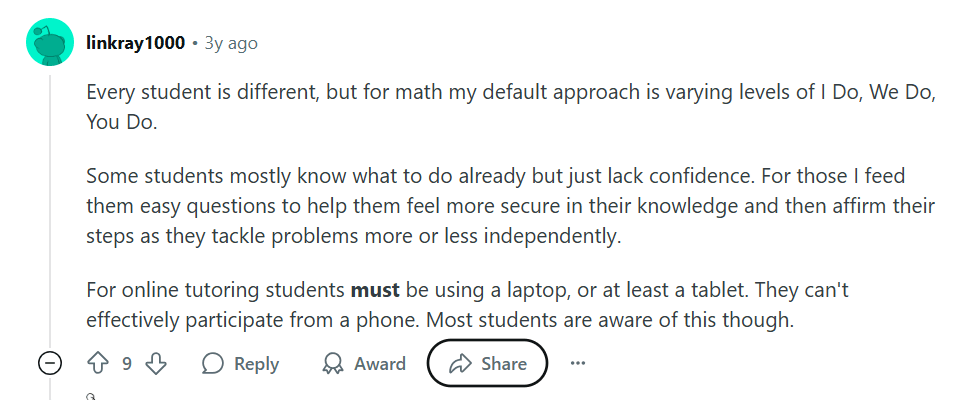
It’s clear that working with middle school students demands a strong understanding of how kids think and behave. For example, when creating our math program, we do a huge job of clarifying the specific interests of each child. Then, we try to implement those topics into lessons, conducting regular checks to monitor students’ motivation. And, yes, it helps to keep them engaged in the long run.
2) How to become an ELA online tutor for middle school students
To become an ELA online tutor for middle schoolers, you should skillfully juggle their independent and controlled work. That’s because kids in grades 6 to 9 are already knowledgeable enough to complete part of their tasks on their own.
And since there can’t be too much practice for those kids, I’d like to share Brighterly reading worksheets with you. They align with the school program and can be used anytime and for varied purposes.
How to become an online tutor for high school students
To become an online tutor for high school students, you should either join a teaching team at a company providing e-learning services or create a strong portfolio to build your clientele on popular platforms.
1) How to become an online math tutor for high school students
To become an online math tutor for high school students, having a degree in math is no longer an option, but an obligation. Considering that you’ll have to help students prepare for SAT, ACT, AP courses and exams, and other state graduate assessments, you should be confident with the subject and stay updated on curriculum changes that impact college admissions requirements.
Understanding the responsibility of teaching high schoolers, many ask the question, “What qualifications do you need to be an online tutor?” To help you with this, here’s a tip I found on Reddit and totally agree with:
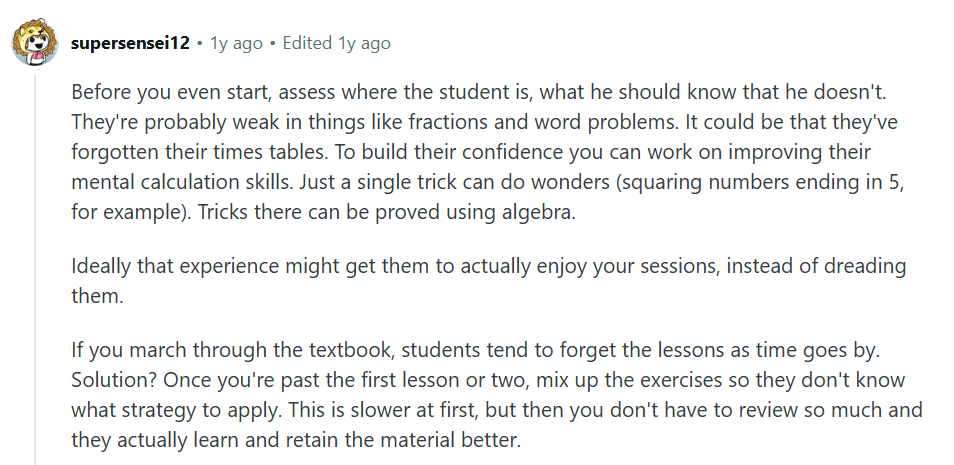
2) How to become an ELA online tutor for high school students
To become an ELA tutor for high school, you should focus on advanced knowledge areas like literary analysis, academic essay writing, rhetorical strategies, grammar and syntax, and standardized test prep (e.g., SAT/ACT).
How much money do online tutors earn
Online tutors typically earn between $10 and $50 per class, with an hourly rate depending on their expertise, the platform they work with, and seasonality. If you want to be an online tutor and get paid, note that lesson prices per hour displayed online will differ from what you will get in the end. It’s not a concern, just a standard procedure accepted by all e-learning platforms.
Online tutoring vs offline tutoring
Online tutoring |
Offline tutoring |
| Ability to work from anywhere | Both tutors and students need to be physically present in the same place. |
| Flexible remote scheduling | It’s sometimes more difficult to schedule classes |
| Productivity of lessons depends on the tech part | The process is easier to organize |
| Global client base | Only local students |
How to become an online tutor at Brighterly
To become an online tutor at Brighterly, you should first visit the Brighterly careers page or check the specific pages listed below depending on the position you are interested in, math tutor or ELA tutor.
- Fill in the form and become an online math tutor now!
- Complete the Brighterly tutor application – ELA and reading!
As someone who has been tutoring at this e-learning platform for a year already, I’d like to share the strongest pro factors you can enjoy once you become an online math or reading tutor:
- A supportive environment where you’re never left alone, even when managing a full lesson load.
- Flexible time-management opportunities, the work from home, and the perspective of becoming an online tutor, as you always wished to.
- Opportunity to express your ideas and implement them into teaching strategies. From my experience, your thoughts do matter here!
- Once you apply to be an online tutor at Brighterly, you embark on the path of growth. Earn your living and also gain knowledge to become a better professional.
What qualifications do you need to be an online tutor?
To be an online tutor, you should have advanced knowledge in your field, an inherent interest in helping kids, and be a good communicator.
I know that most of you would like to have a clear guide on how to become an online math or ELA Brighterly tutor.
Here are the main requirements:
- You should be a fluent English speaker
- Have 6+ months of job experience
- Obtain at least high-school level knowledge
- Be always punctual and prompt
- Have strong communication skills
Brighterly hiring: What do tutors say about working with us?
The Brighterly hiring process is prompt and treats applicants with fairness and respect. When you start working here, you will see that filling out the online tutor application was the right thing to do. See what our tutors are saying about their experience working with us:
“I like Brighterly’s supportive environment”
Some of the Brighterly ELA and math tutors claim that the work opportunities they receive allow them to live a more complete life. Here’s just one review:
“Brighterly offers a good working atmosphere”
Conclusion
How to become an online tutor? You should be completely passionate about the idea of helping kids build on their knowledge and achieve success. If you’re the one, then this guide on how to become a tutor online is right for you! So… are you ready to start?
If yes is the answer, then don’t forget to check the Brighterly careers — they are always welcoming for any passionate tutor. And, hope one day, we can become colleagues:)




